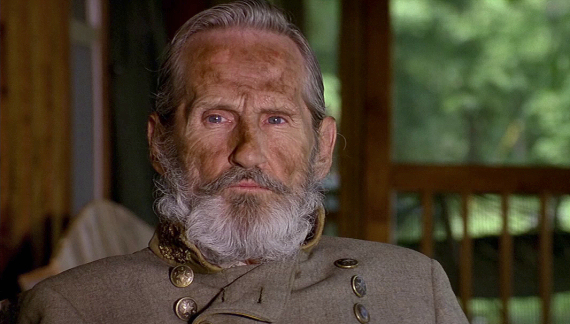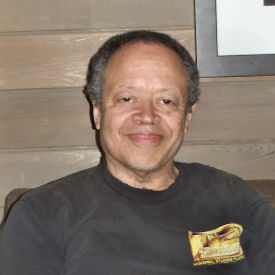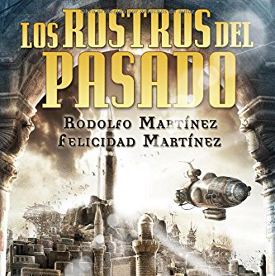
Since my mission, as I see it, is to bring to your attention worthy books, movies and whatever else strikes me that you might not have seen—and sometimes specimens of those that you absolutely must avoid (yes, I take the bullet for you)—I thought I’d bring you this 20-plus-year-old (1993) specimen of the mystery/thriller that absolutely belongs in the fantasy genre, whether you believe the purported explanation given in the book or not.
Mystery/suspense/detective/thriller books (and movies) are usually not thought to be in the SF/F genre, although many SF/F fans are also mystery readers. Some are fans of John D. MacDonald’s Travis McGee, M.C. Beaton’s Hamish MacBeth, Agatha Christie’s Hercule Poirot or Lawrence Block’s Matthew Scudder—in fact, many mystery/thriller/detective writers have dabbled in the F/SF fields from time to time: how many of you remember MacDonald’s Ballroom of the Skies or Wine of the Dreamers? A large number of SF/F writers and fans are MacDonald fans too—Spider Robinson is such a big MacDonald fan that he’s made the pilgrimage to Slip F-18, Bahia Mar in Fort Lauderdale. (As Tom Lehrer says: “The rest of you can look it up when you get home.”)
James Lee Burke has been writing a series—among others—about Louisiana detective Dave Robicheaux for many years; in fact, the book I’m reviewing today was first published in 1993, and it’s the sixth book in the series. The protagonist, Dave Robicheaux, is a failed New Orleans police detective who now occasionally works for the Bayou Teche Sheriff’s Office. (The town of New Iberia, a typical Southern American small town, is situated beside Bayou Teche.)
Dave is an ex-alcoholic, married with one adopted daughter, Alafair (who shares the name with Burke’s actual daughter, a mystery writer herself), and who owns a fishing dock and bait shop (see my hat in Figure 3). He is, like most good protagonists, a complex character who struggles with his desire to be a good guy and do the right thing versus both the demands of the law and the need to solve crimes in what might be an extra-legal fashion. (Not exactly uncommon in crime/mystery stories. Private detectives in stories and movies, for example, almost always skirt legality in solving their crimes.)

What distinguishes Burke’s writing—for me at least—is not so much his protagonist, because we have terrific protagonists in most of the above-mentioned series, but his descriptive powers for both character and place. Burke—who now lives in Missoula, Montana—brings the bayou country of Louisiana, and the characters of not only the main protagonists of the novels, but also the ordinary folk who people said bayou country, to life with a rare vividness, but without, for the most part, employing purple prose or lengthy expository lumps; instead, a single paragraph, for example, integrated into the story line, brings one’s mental picture to life. Witness:
“The rain fell through the canopy of oaks as I drove down the dirt road along the bayou toward my house. During the summer it rains almost every afternoon in southern Louisiana. From my gallery, around three o’clock, you could watch the clouds build as high and dark as mountains out on the Gulf, then within minutes the barometer would drop, the air would suddenly turn cool and smell like ozone and gun metal and fish spawning, the wind would begin to blow out of the south and straighten the moss on the dead cypress trees in the marsh, bend the cattails in the bayou, and swell and ruffle the pecan trees in my front yard; then a sheet of gray rain would move out of the marsh, across the floating islands of purple hyacinths in the bayou, my bait shop and the canvas awning over my boat-rental dock, and ring as loud on my gallery as marbles bouncing on corrugated tin.”

If you’ve never lived in, or visited, the Deep South or Cajun country, the above is a terrific description that might give you a good sense of what it’s like; but if you have been there, even briefly, you are immediately transported back there; you feel the heat and the humidity—and the fitful breezes of the oncoming storm, smell the mud and the fish scents from the water, and hear the rustle of the trees and the cattails. (Funny, they seldom talk about the humidity—which, if you step out of the airport terminal in New Orleans, is like a slap in the face with a wet washcloth—or the bugs, the snakes and other less-desirable parts of Louisiana living.) Despite that, and despite the tourist trap that New Orleans is, even after Hurricane Katrina, Louisiana is a part of the U.S. that you might want to visit, even for a short time.
Of course, description alone can’t make a novel work; a mystery/detective/thriller book also includes a riddle that the detective must solve, and a reader can sometimes solve it before the ‘tec (as they are often called) does if enough clues are given. But beside the usual baggage of detective stories, Burke also comments—through his characters and situations—on the many moral dilemmas facing modern society, from the enduring and not-so-subtle racism of parts of the deep South, to the US’s involvement in Central America, to the hardly genteel decay, as some see it, of modern morés and customs. He also—as a recovered alcoholic himself—spares some time for the quandaries of various types of addiction we can all be subject to. But all those “lessons” are subtly integrated into story and character, making Burke’s Robicheaux novels deep, layered and affecting.
In this particular book, which deals with the horrific murder (and other things) of a couple of young women of—shall we say “questionable character”?—in and near Iberia Parish (Louisiana, unlike all other states, does not have “counties”; as part of its Roman Catholic heritage under Spanish and French rule, each parish corresponds roughly with an old church boundary), where Robicheaux lives and works. (New Iberia is the seat of Iberia parish.) Besides his work for the Sheriff’s office, Dave owns and operates a bait shop and fishing charter service (see hat in Figure 1), run mainly by his employee and old family friend, Batiste. Dave’s age roughly corresponds with Burke’s (Burke was born in 1936); although like many series characters he seems ageless—readers will assign to him whatever age their mental picture takes. He has a wife, Bootsie, and an adopted daughter, Alafair, whom he rescued when she was practically an infant from a sunken airplane carrying dope from Central America (that’s another long story).
Capsule Review of In the Electric Mist with Confederate Dead: Dave Robicheaux has a brief encounter with a famous Hollywood actor named Elrod Sykes and his girlfriend, actress Kelly Drummond; Sykes and crew are in New Iberia filming a multi-million-dollar Civil War epic. In exchange for being let off a drunk-driving charge, Sykes tells Dave about a dead body he saw out in the swamp, and also about a Civil War General he saw, who gave him a message for Dave about “holding back the tide.”
Robicheaux dismisses both stories until Sykes tells him the skeletal remains were wound about with a heavy iron chain. Dave immediately flashes back to 1957, when he was 19, and saw from about a mile away, a black man in chains being shot and murdered in the swamp by two white men. As no murder, or missing black man, were ever reported by anyone but Dave, the sheriff paid no attention and Dave finally managed to convince himself that the man had probably escaped by swimming underwater. He tells Sykes to come back to the Sheriff’s office in the morning, and they will visit the place Sykes says he saw the body.

At the same time, because he is one of the sponsors of this movie, an ex-friend of Dave’s from high school, named Julie “Baby Feet” Balboni—a “mobbed up” guy from New Orleans, comes to town with his goons and his chippies; the sheriff sends Dave to try to convince Balboni to leave town (you know, the old “don’t let the door hit you in the butt on the way out” routine used for undesirables); Balboni tells Dave to lay off or they’ll take their movie millions to Mississippi or Alabama. The sheriff is also told to lay off by businessmen in New Iberia who fear the loss of all that movie money. At the same time, the bodies of young women begin to show up; Dave is convinced that either someone in the movie company or Baby Feet’s retinue—or maybe Baby Feet himself—is responsible for the deaths. The Sheriff calls in the FBI (“Fart, Barf and Itch,” they’re called by local cops) in the person of Rosa Gomez, Special Agent, to investigate the kidnapping and murder of the young women.
At a birthday bash for the film’s director (See Figure 4), where he has come to talk to Sykes and a musician, Sam “Hogman” Patin, Dave is given a “virgin” mint julep, and becomes intoxicated, driving his truck off the levee and into the bayou on his way home in a heavy fog. After the truck crashes, Dave sees “electric” colours and flashes in the mist and himself sees and talks to the Confederate General, one John Bell Hood from Kentucky. Dave wakes up in the hospital, where Rosa tells him his blood tested negative for alcohol, but they suspect he was dosed with LSD.
The first dead girl, Cherry Leblanc, may or may not be known to Baby Feet; his man Cholo says they had discussed her after the article about her death appeared in the paper; Baby Feet says no, he’s never heard of her. She appears to have been raped, and mutilated after death. A second girl is found in an oil drum in Bayou Teche; the blue crabs have been at her and an identification is not made, but Robicheaux suspects she and Cherry are linked—and somehow linked to Julie Balboni’s reappearance in New Iberia. I will leave out the spoiler on this particular review, however, as I think it’s good enough that you will be drawn in on your own.
Just about the only real flaw in Burke’s writing for me is that many of his characters in this and other Robicheaux novels treat each other with disrespect and disdain to an extent I don’t believe normal people do. Although I jump on each new book in the series with eagerness—one comes to feel about series characters as if they are, in a sense, real people—that continues to bother me when I encounter it. Despite this flaw, the book and the series continue to enthrall me. At the end of the book you are left not knowing whether General Hood was real or a figment of Dave’s and Sykes’s imaginations, and I like it like that.

Film Review of In the Electric Mist, the movie adaptation of this book. The film stars Tommy Lee Jones as Dave Robicheaux, and Mary Steenburgen as his wife, Bootsie; both people are older than one might have visualized these characters. However, if you read the books, they are closer to the actual characters’ ages than one might think. John Goodman plays Julie “Baby Feet” and Peter Sarsgaard plays Elrod P. Sykes. (As a film in-joke, John Sayles plays the film-within-a-film’s director.) The Confederate General, General John Bell Hood, is played by the late Levon Helm of The Band, who played convincing Southern characters in more than a few movies. (“Hogman” Patin is played by real-life bluesman Buddy Guy.) The film, while almost word-for-word from the book, doesn’t quite have the sense of time and place as the book does, and so (to me) is less successful. They also state baldly that Dave was given LSD at that birthday party—which I don’t agree with—and then leave it open at the end. This isn’t the first Dave Robicheaux book to become a movie; that honour goes to Heaven’s Prisoners (1996), starring Alec Baldwin as Dave, as well as Teri Hatcher, Eric Roberts and Mary Stuart Masterson. That was also an enjoyable film, but it had no fantasy overtones like this one.

As I discover other books from other genres that might fit into ours, I will continue to bring them to your attention—whether to laud them, as here, or to warn you to stay away for your own sake!
I always appreciate comments on my columns. If you want to do so, you can either register—if you’re not already registered—and comment here; or you can comment on Facebook, where I regularly publish a link to these columns. Whether your comment is favourable or not doesn’t matter; I learn something even from those who disagree with me. So all comments are welcome. My opinion is, as always, my own, and doesn’t necessarily reflect the views of Amazing Stories or its owners, editors, publishers or other bloggers. See you next week, “Lor’ willin’ an’ the crick don’t rise!”
Steve has been an active fan since the 1970s, when he founded the Palouse Empire Science Fiction Association and the more-or-less late MosCon in Pullman, WA and Moscow, ID, though he started reading SF/F in the early-to-mid 1950s, when he was just a sprat. He moved to Canada in 1985 and quickly became involved with Canadian cons, including ConText (’89 and ’81) and VCON. He’s published a couple of books and a number of short stories, and has collaborated with his two-time Aurora-winning wife Lynne Taylor Fahnestalk on a number of art projects. As of this writing he’s the proofreader for R. Graeme Cameron’s Polar Borealis and Polar Starlight publications. He’s been writing for Amazing Stories off and on since the early 1980s. His column can be found on Amazing Stories most Fridays.










Recent Comments